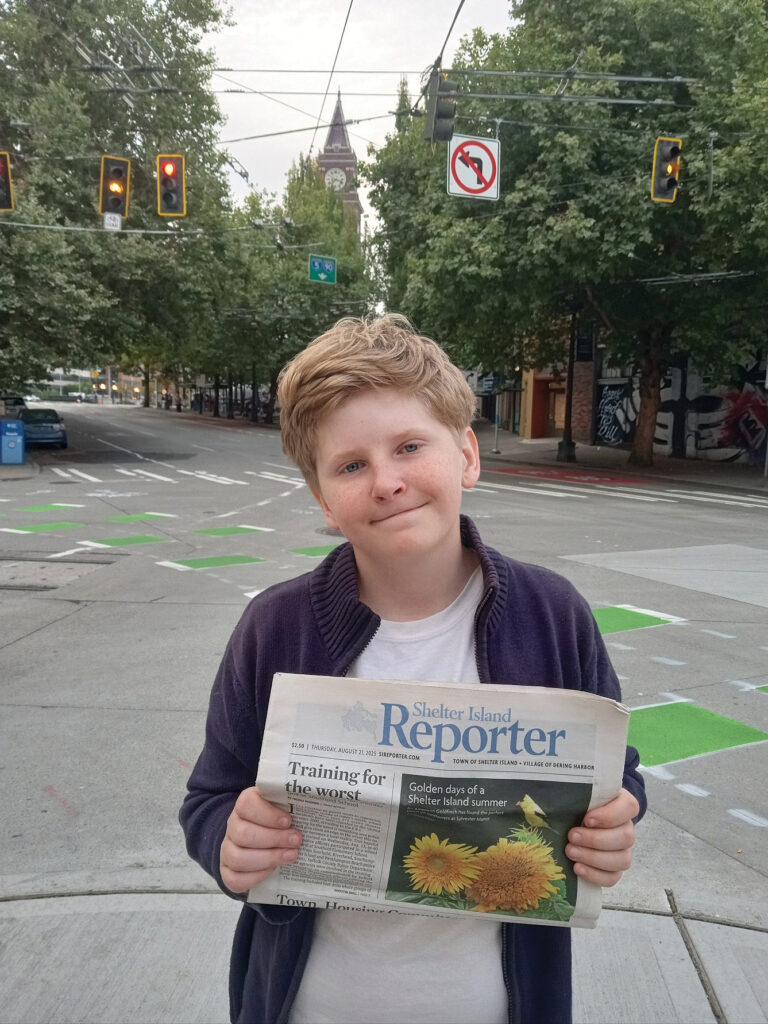Jenifer’s Journal: Animal pragmatism

How it is that animals understand things I do not know, but it is certain that they do understand. — Frances Hodgson Burnett
This is a second anniversary column. My first column, which came out on March 2021, was about how I came to inherit this space from that estimable man-for-all-seasons, the late Richard Lomuscio, a topic that made sense.
Around my first anniversary last year I wrote a column titled “Mr. Lambert’s Cake,” recounting my fond childhood memories of St. Paddy’s Day in spite of my not being Irish. This year has found me floundering around trying to hit on an appropriate second anniversary topic that lands comfortably enough somewhere between sense and nonsense, which is apparently my natural habitat.
In the past weeks I’ve written about everything from book-banning to aging to chronic pain. It’s tough to be a human nowadays. Big swaths of us seem to be making terrible choices and other swaths of us are suffering for it. Many of us seem confused about not only what it means to be human, but how to be human.
Depressing.
As my title suggests, that all-too-human conundrum leads me, and not for the first time, to turn toward our animal friends for a little wisdom. See, as far as I know, animals never have to try to be what they are.
They don’t give it a thought. They never dabble in the high-flown climes of the theoretical. They are consummately practical. They are not confused about what they like, what they don’t, what to eat and what not, what makes them content, how to achieve it, and what frightens them and how to avoid it.
They appear to have the ability to satisfactorily fill their days while, at the same time, being able to fraternize with a species that usually doesn’t.
With the best of intentions, confused humans, however inadvertently, frequently do seem to project their identity crises onto their animals. In fact, according to an article “Anthropomorphism is the Greatest Threat to Animal Welfare,” on the website Protecttheharvest.com, the human penchant for assigning human characteristics to their pets can do a lot of damage: “Anthropomorphism places unrealistic and unfair expectations on animals … when it is directed towards animals, it gives humans an unrealistic model for those animals to live up to. Just as we should not expect a human child to act like a dog, we should not expect a dog to act like a human child, as they are not equivalent to the other.”
The article lists specific behavioral and health problems that can arise: “Unrealistic expectations for pets and even livestock, [for instance] owners who expect them to ‘know better,’ ‘feel guilty,’ and never express their natural instincts are examples of this … behavioral problems and lack of training are the number one reason small animals are surrendered to shelters and large animals, like horses, are abandoned.”
While anthropomorphism is rightly frowned upon, studies are showing that animals of all kinds are actually closer to homo sapiens than ever imagined.
In a 2013 article by Oliver Milman, which appeared on the Minneapolis Institute of Art website, he writes “Now we have these scientists, a prominent international coalition, who in early fall signed the Cambridge Declaration on Consciousness, supporting the idea that animals are conscious and aware to the same degree as humans — most animals anyway, even those that long ago diverged from us evolutionarily, like birds and octopi. In science-speak, they declared, ‘The absence of a neocortex does not appear to preclude an organism from experiencing affective states.’ Animals’ actions are intentional. They think about what they’re doing … more to the point, what they’re feeling. But declaring animals to be more human-like than we’d acknowledged probably doesn’t mean we’ll treat them more humanely. On the contrary, it would seem to support further personification, when what’s actually needed is respect. Respect for animals as animals, and for the humbling fact that humans are not as unique as we’d been led to believe. Until then, it will remain an inconvenient truth.”
If only we could understand each other better linguistically (perhaps someday we will), our pets could’ve told us that already.
They don’t have to dress us up as kittens or puppies to demonstrate how much we, as the vastly younger species, reflect their relational patterns. It’s taken them a while, because I’m such a slow learner, but my cats are training me in how to please them, play with them and care for them.
Like any sisters, they fight sometimes, vying for attention, treats and favored perches on the cat tree. But they’re too pragmatic to hold grudges for long.
They get too much pleasure out of playing tag and keeping cozy company with one another for something silly like that.









